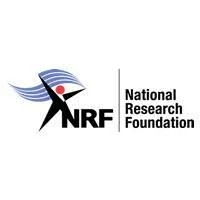New policy aims to grow the numbers
The National Research Foundation (NRF), which is mandated to advance scientific research in South Africa, has introduced a new policy to bring in more black participants into the research fraternity.
The new policy states 90% of bursaries will be awarded to black students and 55% to women. NRF spokesperson Candice Molefe said the new policy would aid in motivating high achievers to pursue postgraduate studies.
“Qualifying students are offered bursaries to study for honours, research masters or doctoral degrees on a full-time basis with the objective that these individuals become future knowledge producers of the country,” Molefe said.
“Given the need to accelerate the entry of individuals into the research system and to grow the next generation of researchers, the policy has set an age limit for funding eligibility per level of study.”
The maximum age at which a student can apply for an honours bursary is 28, and 30 and 32 for masters and doctoral studies, respectively. To qualify for the bursaries, students must achieve a minimum academic performance of 65% in the undergraduate degree.
The NRF will also consider the financial need of the applicants when awarding the bursaries. Students whose combined household income is R350 000 per annum or less, and students living with disabilities are eligible for funding for the total cost of the tuition, as are students with a distinction or first-class pass at undergraduate level.
NRF data shows that in 2018, the organisation awarded 2 500 grants to black researchers and 2 000 to white researchers. However, the data shows that white researchers were allocated R353-million in funding, compared with R204-million to black researchers.
The data also shows that male researchers received the lion’s share of the funding, with R363-million. Women received only R287-million.



